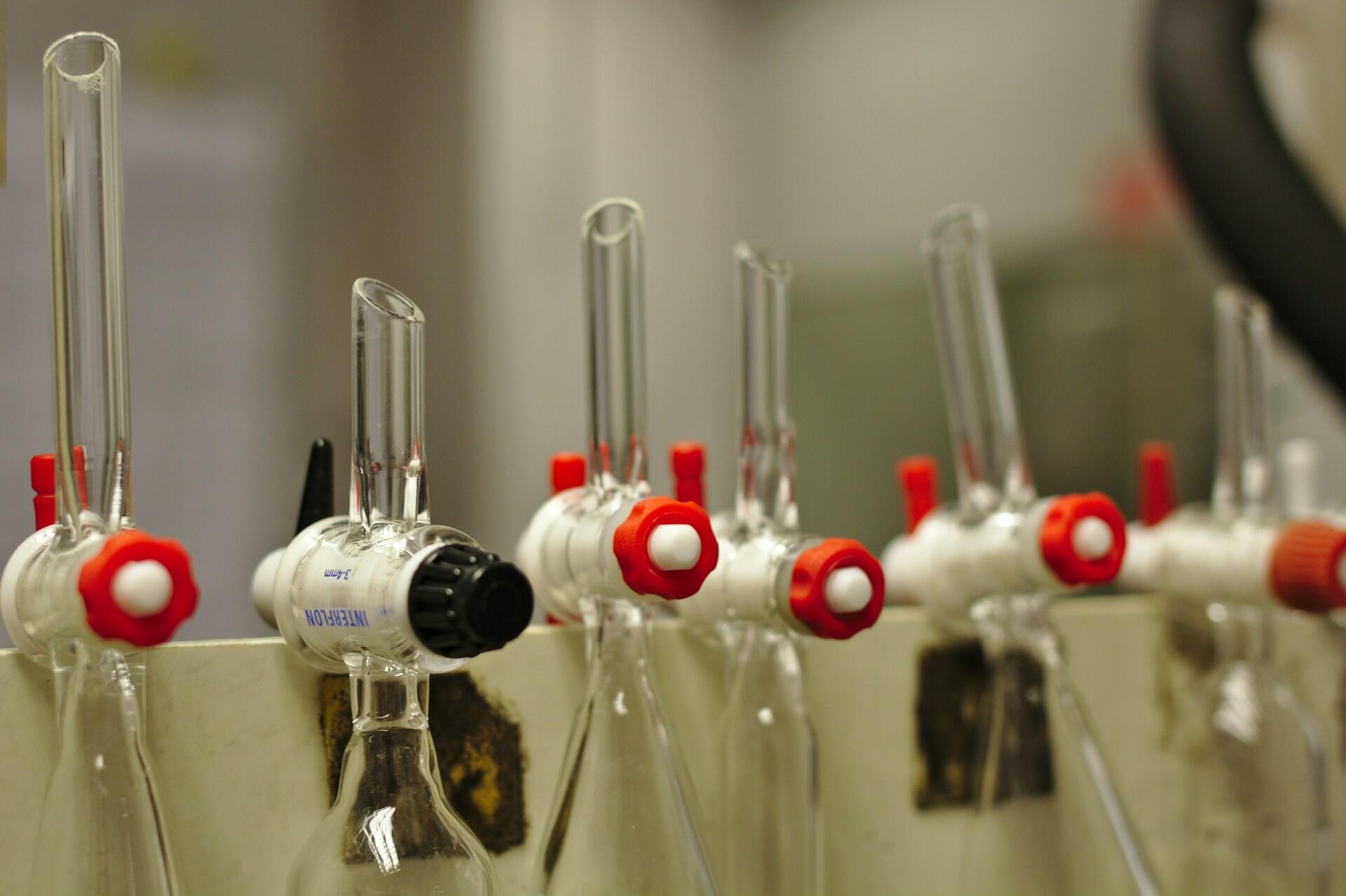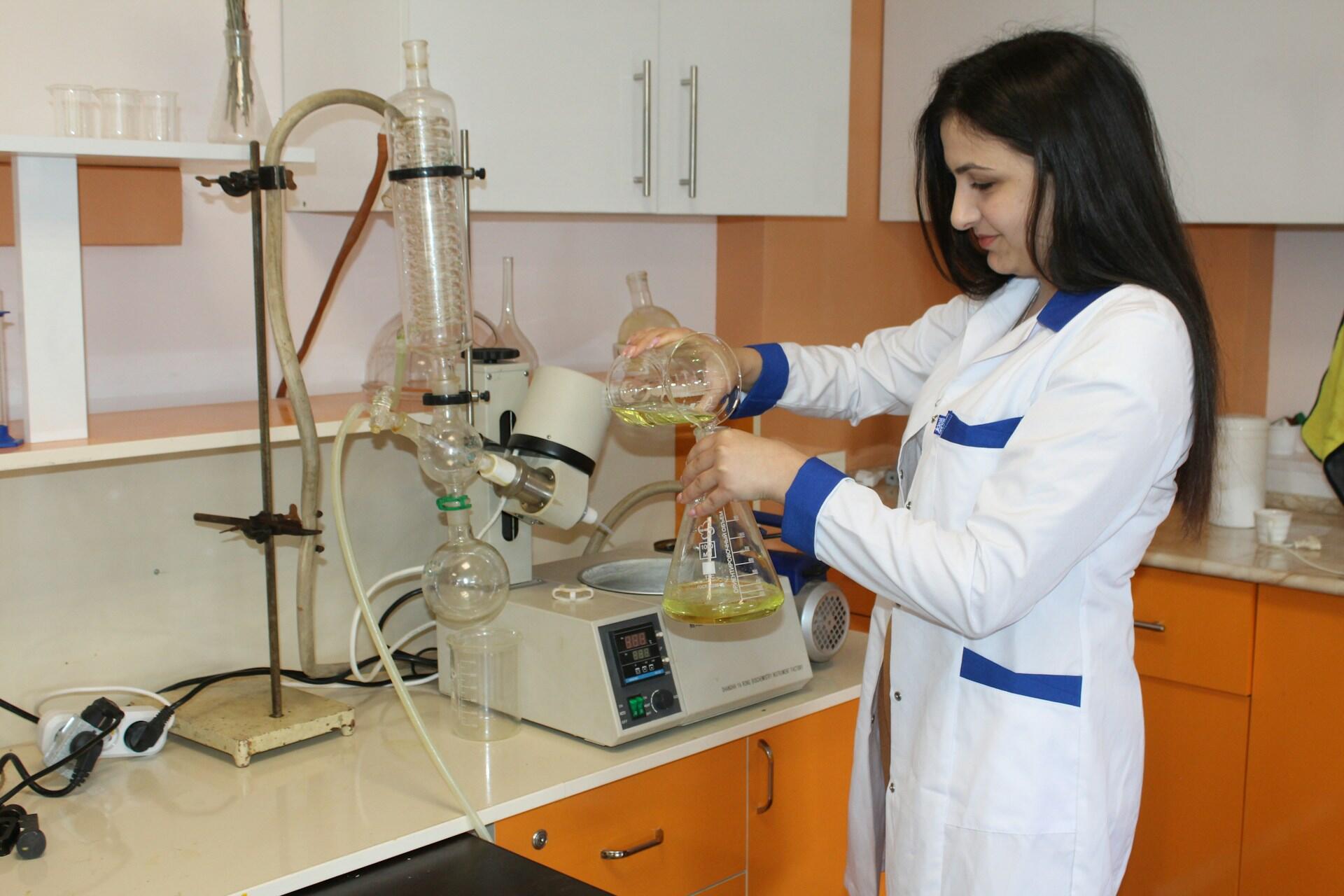The triumphs of engineering skill rest on a chemical foundation.
Horace G. Deming
Is chemical engineering hard? We'd be lying if we said it wasn't. With its blend of chemistry, physics, mathematics, and engineering principles, students tend to struggle with parts of it. However, with career opportunities in pharmaceuticals, energy, and environmental engineering, many feel it's worth it. So, how difficult is chemical engineering really?

A High-Paying but Challenging Major
Choosing a subject with a promising scope that would guarantee a flourishing career excessively pressurizes students. Despite multiple subject options, students often become indecisive when choosing a major.
Problem-solving
Analytical Thinking
Mathematical Proficiency
Communication Skills
Technical Expertise
One thing to remember while picking a major is to opt for a subject that could offer career opportunities in more than one sector. A wise choice you should consider in picking a major is chemical engineering, as it offers high-paying job opportunities in multiple sectors.
However, many students find a major in chemical engineering challenging. But leave that worry to us, as Superprof is here to teach you chemical engineering from beginner to advanced level. Here, several highly skilled and experienced chemistry tutors will assist you.
Let's discuss how challenging chemical engineering is for some and how you can ease the learning process.
How Do You Define Chemical Engineering?
Before diving into the complexities of chemical engineering, it is essential to understand what it is as a major.
Here it is explained quickly.
Chemical engineering is a branch of engineering that manufactures chemical products. It involves the design, configuration, execution, operation, and improvement of different equipment and methods to convert raw materials into valuable chemical products.

Chemical engineering uses the principles of chemistry, physics, mathematics, and biology to formulate different chemical products. It also involves the formation of chemical products that help in everyday life. However, one should know that the products created by a chemical engineer undergo several processes, such as extracting raw materials, mixing, refining, and compounding.
Step 1
Extraction
Raw materials are extracted from natural sources, such as oil, natural gas, or mined minerals.
Step 2
Refining
The raw materials are purified to remove impurities.
Step 3
Mixing
Refined materials are combined with other chemicals or additives.
Step 4
Production
The mixture undergoes chemical processes to create the final product.
Step 5
Distribution
The finished chemical products are packaged and prepared for shipment.
Chemical engineers are hired by medium to large-scale businesses in various industries. Not only do they ensure the smooth and profitable manufacturing of chemical products, but they also minimize losses for companies.
Chemical engineering controls several departments of product manufacturing, including construction, design, modeling, operation, analysis, monitoring, optimization, cost estimation, and employee safety to comply with laws and regulations.
After completing your major in chemical engineering, several industrial sectors will offer you tremendous career opportunities. Some prominent job positions that you can secure after getting an undergraduate degree in chemical engineering are:
- Nuclear engineer
- Petroleum engineer
- Plant process engineer
- Environmental engineer
- Analytical engineer
- Biotechnologist
- Color technologist
- Waste management officer
- Energy engineer
- Quality manager
- Pharmaceutical engineer
- Aeronautical engineer
- Process safety engineer
- Food manager
- Chemist
- Polymer engineer
There is a 9% job growth in the chemical engineering field. However, the only way to secure a prestigious job is by completing your major in chemical engineering and developing a relevant skill set.
Oil and Gas Extraction
Pharmaceutical Engineering
Chemical Manufacturing
Environmental Engineering
Biotechnology
Superprof's top-notch chemical engineering tutors are here to provide interactive online sessions so that you can learn the subject effortlessly.

How Hard Is Chemical Engineering?
Although a major in chemical engineering has numerous benefits and a broad scope, there's still a tricky area that cannot be avoided.

Many students who have opted for this major complain about chemical engineering difficulty such as wrapping their heads around chemical engineering topics. Here are the reasons why chemical engineering is hard:
- Firstly, chemical engineering involves the principles of multiple academic areas, including chemistry, physics, mathematics, and biology. This makes it hard to understand as several intertwined concepts, theories, and ideas exist.
- Chemical engineering involves mathematical calculations, which may not be a strong suit for everyone. Math is a tricky study area involving differential numbers, complex values, symbols, and formulae. Chemical engineering involves an extensive application of mathematics, especially in calculating the amount of raw material used to create a specific chemical product. Therefore, if you lack basic mathematical knowledge, chemical engineering will seem absolute gibberish to you.
- Chemical engineering demands a creative approach, logical and analytical thinking, problem-solving techniques, and the skill to solve different brain teasers. Hence, this field can significantly challenge those who lack these skills.
- Chemical engineering is meant for students who are attentive and enthusiastic about academics. This tricky subject requires adequate time, attention, focus, and consistent practice. Therefore, chemical engineering can be a pain if you are not an academic bookworm.
- If you want to major in chemical engineering, be prepared to perform back-to-back assessments and exams from undergraduate to master's level. This field requires you to clear exams after exams to move forward. And, if you are not a learning enthusiast, it's time to either become one or not pick this subject.
Is Chemical Engineering Harder Than Chemistry?
Due to the substantive involvement of chemistry principles in chemical engineering, many individuals consider them similar fields. However, this is not true. Below is a chemistry vs chemical engineering chart where you can see fundamental differences between the two. The chart also proves that chemical engineering is more challenging than chemistry.
| Aspects | Chemistry | Chemical Engineering |
|---|---|---|
| Area of Study | Investigates the background of different aspects, including organic, inorganic, analytical, physical, and biochemistry. | A more practical study area that applies science to problems like heat transfer, equipment design, and fluid dynamics. |
| Main role | Chemists are only required to develop materials and processes. | Chemical engineers must design, model, execute, operate, and improve chemical products and processes. Moreover, they also make the product and process more efficient, taking it to a larger scale. |
| Math | Elementary level of math used | Advanced math is required |
| Principles | Involves the use of only chemistry principles | Involves using multiple principles, including chemistry, physics, math, and biology. |
| Place of work | Chemists work in laboratories, classrooms, offices, and in the field. | Careers for chemical engineers involve practical or field areas like designing or operating a plant manufacturer. |
After looking at the above chart, it can be discerned that chemical engineering is far more challenging than chemistry, as it involves more complexities and strategic work. But you need not worry about learning this subject, as we have your back. Superprof hosts exceptional chemical engineering tutors with personalized classes that will make you a skilled professional.
Chemical Engineering
- Focuses on large-scale production
- Involves physics, biology, and engineering
- Requires process optimization skills
Chemistry
- Focuses on chemical properties and reactions
- Primarly involves chemistry and lab work
- Requires analytical and experimental skills
How to Make Chemical Engineering Easy to Learn?
We understand that a challenging major can risk your degree and career. Therefore, we have devised essential steps to ease the learning process and ensure that you finish your degree with flying colors.
Let's have a look at some of the vital methods of studying this subject:
Enroll Yourself in a Credible Educational Institute
The first step to becoming a professional chemical engineer is enrolling in a reputable educational institute. Several universities for chemical engineering in the US offer world-class education. This way, you can learn the subject from scratch in a professional environment. By the time your academic period ends, you will have both the education and skill to secure a lucrative job in the competitive market.
Get Field Experience
Experienced chemical engineers earn high salaries with additional benefits. The best way to learn chemical engineering efficiently is to dive straight into the fieldwork after you have completed your bachelor's degree. It is crucial, as this field is about applying science to practical situations to obtain the desired chemical product. You will have expertise in creating chemical products and the skill of designing, operating, monitoring, optimizing, and improving the various methods and techniques required to manufacture valuable chemical goods.
Work with Industry Experts
Another effective way of learning chemical engineering is by working with seniors and industry experts in this field. Try to get internships and entry-level jobs where you can get a chance to assist experts and experienced chemical engineers.

They will provide essential tips and tricks for working in different chemical engineering sectors. Industry experts can give you valuable insights on moving your way up and building a flourishing career. Additionally, working with credible professionals will allow you to grow your network and help secure well-paying jobs.
Ensure Regular Practicing
The key to acing chemical engineering is conducting regular practice. You should give this subject one or two hours per day. It guarantees you the vital basics of this field to reach advanced stages.
Hire a Private Tutor for Chemistry
Hiring a private tutor is one of the most reliable ways of learning chemical engineering. It is an effective learning way for so many reasons. Let's look at some of them:
- A private tutor will give you their sole attention, time, and focus, which is effective in learning a complex subject like chemical engineering.
- You can have an interactive one-on-one session with your teacher, teaching you the subject to its core and making the learning process fun and interactive.
- A private chemical engineering tutor will answer as many questions as possible, unlike teachers who teach multiple students altogether in one place.
- You can set your own learning pace in private tutoring.
Private teachers use a systematic educational method that delivers timely lectures, organizes Q&A sessions, and regularly tests students.

Get a Chemical Engineering Tutor from Superprof
If you are looking for private chemical engineering tutoring, head to Superprof. It is a globally recognized online tutoring platform with highly experienced chemistry teachers on its panel. At Superprof, teachers have profound chemistry education and knowledge coupled with years of solid experience in the chemical engineering sphere, making them the best fit for your learning.
The best part about Superprof is that you can pick a tutor of your choice and set the session timings and learning pace independently. Additionally, our teachers have verified reviews, secure payment options, and affordable per-hour rates. It makes us the go-to online educational platform amongst students worldwide.
Summarize with AI:
















As someone who has a B.S. in Both, Chemistry uses more mathematics than Chemical Engineering.
Really?
Please can you explain
Is chemical engineering a hard course
Hello Abasitemi! Chemical engineering can be a difficult course for some students, but it depends on your past experiences and the time you dedicate to studying. If you would like extra help with your course, please reach out to a Superprof tutor and they will be more than willing to help you make the class easier! 😊